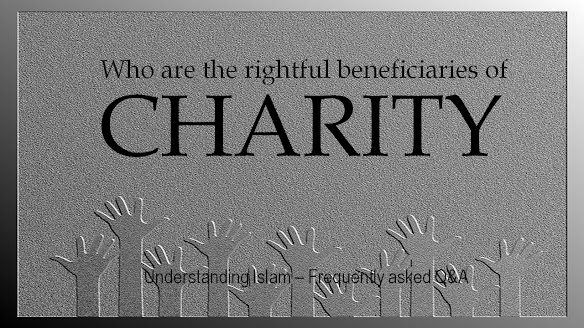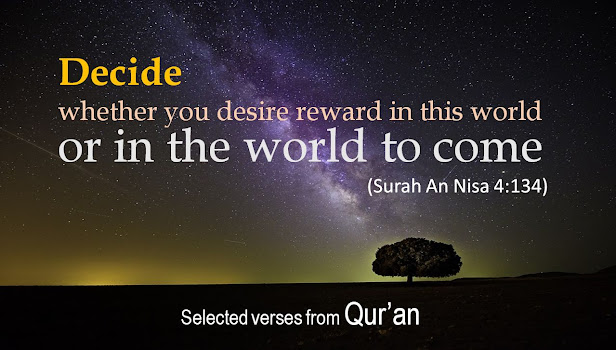Qur'an is a book of Allah that contains Allah's commandments for the guidance of the mankind. Being a Book of God, therefore, it enforces on his strict etiquette to listening to it when it is being recited.
Why I needed to write this post is based on my experience of many years ago when in my official capacity I was attending a religious day of a Divine religion. The function was a fanfare event with lot of amusement events for the families and the kids and everyone seemed to have a rollicking time. At the end of the event, the priest announced that the sacred religious book would be read and that it should be listened to quietly. However, to my dismay, when the recitation started, many families continued to gossip and children continued to run around and making merry. The priest many a times stopped recitation and urged everyone to be attentive and honour the reading of the holy book. But the festive mood of the crowd continued and the priest had to cut short the recitation with a bit of anger and embarrassment.
Thus it is incumbent upon us to pay respect to the words of God and listen to it with utmost awe, reverence and in silence as a sign of respect and to understand what is being recited and said.
The commandment of Allah in the 204th verse of Surah 7. Al-A'raf is similarly the same and it is being said, specially to the illiterate and coarse audience who pay deaf ear to the recitation of word of God:
وَاِذَا قُرِئَ الۡقُرۡاٰنُ فَاسۡتَمِعُوۡا لَهٗ وَاَنۡصِتُوۡا لَعَلَّكُمۡ تُرۡحَمُوۡنَ
(7:204) So when the Qur'an is recited, listen carefully to it, and keep silent so that you may, be shown mercy.'
It means, "In your bigotry and obduracy you turn a deaf ear to the Qur'an when it is being recited, and make a loud noise so that no one should be able to listen to it. Leave this wrong attitude towards it and listen to it with attention and consider the teachings contained in it. It is just possible that your acquaintance with it may enlighten your hearts and make you co-sharers with the Believers in the mercy of your Lord."
Incidentally, it should be noted that the above answer to the taunts of the opponents is so nice and sweet and appealing to the hearts that words cannot describe its excellence. There is also a lesson of wisdom for those who are engaged in the missionary work.
Though the real object of this verse is the same that has been stated above, incidentally it also enjoins the hearers to remain silent and listen to it as a mark of respect which is due to the Book of Allah. It is also deduced from this that when the Imam recites the Qur'an during the Salat, the followers in the congregation should listen to it in silence, and they should not recite anything. There is, however, difference of opinion among the Imams in regard to its interpretation. According to Imam Abu Hanifah and his companions, the followers in the congregation should not recite anything whether the Imam is reciting the Qur'an aloud or silently in his mind. However, Imam Malik and Imam Ahmad arc of the opinion that only in that case when the Imam is reciting the Qur'an aloud, the followers should not recite anything, but in the other case they should recite Surah Al-Fatihah. But according to Imam Shafi'i, the followers must recite Surah AI-Fatihah, whether the Imam is reciting loudly or silently in his mind. He bases his opinion on the Traditions according to which one's Sales is not complete without the recital of Surah AI-Fatihah.
Tafsir Ibn-Kathir: The Order to listen to the Qur'an - After Allah mentioned that this Qur'an is a clear evidence, guidance and mercy for mankind, He commanded that one listen to the Qur'an when it is recited, in respect and honor of the Qur'an. This is to the contrary of the practice of the pagans of Quraysh, who said:
"Listen not to this Qur'an, and make noise in the midst of its (recitation)'') [41:26]
Ibn Jarir reported that Ibn Mas`ud said; "We would give Salams to each other during Salah. So the Ayah of Qur'an was revealed; (When the Qur'an is recited, then listen to it.)
Qur'an Wiki: Because the Qur’ān is such, the believers are given an express directive. This verse comes towards the end of the sūrah which begins with a clear reference to the Qur’ān: “This is a book that has been bestowed on you from on high — so do not entertain any doubt about it — in order that you may warn people with its message, and admonish the believers.” (Verse 2) There are various reports suggesting different situations when the order applies to listen attentively and in silence to Qur’ānic recitation.
For our part, we do not feel that any of the causes for the revelation of this verse restricts it to recitation in prayer, whether obligatory or voluntary. The verse mentions a general statement that need not be restricted by the cause of its revelation. It is more appropriate to say that this is a general statement, unrestricted in application. Whenever the Qur’ān is recited, listening attentively to it is the proper course of action, because it demonstrates people’s respect of the Qur’ān, the word of God the Almighty. When God speaks, it behoves human beings to listen attentively. Besides, this listening is in the hope of being graced with mercy. What restricts that to prayer only? Whenever the Qur’ān is recited, and people listen attentively to it, they may understand and respond to it. This puts them in a position which may bring them mercy in this life and in the life to come as well.
People incur a great loss that cannot be compensated when they turn away from the Qur’ān. At times, listening to one verse of the Qur’ān brings about remarkable interaction, response, clear insight, appreciation, reassurance together with an enlightened understanding that can only be appreciated by a person who has had a similar experience. When the Qur’ān is listened to carefully, not merely heard for enchantment and pleasure by its recitation, it provides the listener with a clear, penetrative insight, reassurance, knowledge, energy and a firmly positive attitude that cannot be produced by any other means.

























